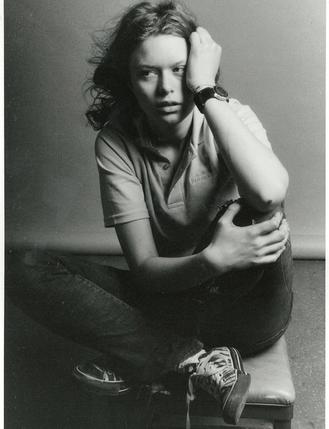OFFICIAL DISCUSSION GUIDE



1. Which scenes from the book were the most memorable for you?
2. Despite the challenges of Emi’s upbringing, there are multiple moments of lightness and humor within the book. Are there any moments that made you feel hopeful, or laugh?
3. Emi interacts with a number of social workers, teachers, health care professionals, and influential adults throughout her adolescence. How do the adults in Emi’s life try to help her? In what ways do they fail?
4. After Emi is rejected from Yale, she changes her strategy for college admissions. What does she learn about admissions from this experience? What did you learn about college admissions – and the way our society thinks about mental health?

5. Throughout the book Emi comes up against many definitions for “resilience.” How do her beliefs about resilience change over the course of the book? What are your beliefs about resilience? Did this book change them?
6. For Emi, getting into college seemed like her best path to upward mobility and personal agency. Discuss the ways her expectations for Harvard did or did not match her experience there. Which aspects of her experience surprised/did not surprise you? If you attended higher education, how did her experience relate to yours?
7. What did extracurricular activities like photography and rowing offer to Emi? Does this affect the way you think about the importance of extracurriculars in schools?
8. Throughout her journey, Emi encounters multiple people who surprise her with acts of kindness. Are there any in particular that stood out to you, and if so, what made them so impactful? Were there acts of kindness that shapes her own life?
9. At the end of the book, Emi decides to part ways with her mother. What motivates her to take this action? What were your feelings about this? Have you ever been estranged from a family member or considered estrangement?
10. Emi’s book is titled Acceptance, and she spent much of her young adulthood seeking community and support, be that through school, friends, family, or work. Where does Emi finally find and feel accepted?

1. After her mother sought medical treatment for Emi numerous injuries and illne doctors and nurses decide medicate her with antidep and antipsychotics, rather understand the underlying that led to these health iss What led to Emi’s stay at the hospital, and later, an inpatient youth treatment center?

2. While living in a youth treatment center, Emi and her peers were frequently told to take responsibility for their lives. How did this approach change the way Emi perceived her own struggles?
3. As a teenager, many of the mental healthcare professionals and doctors Emi encounters became preoccupied with her appearance. Why do you think they chose to focus on Emi’s hair or dress?
1. What role did school play in Emi’s adolescence? How did different educators in her life support or neglect her needs as a student?
2. What was the significance of arts education in Emi’s development? How can opportunities for arts education and extracurriculars support student growth and confidence?
3. What was Emi’s criteria for the colleges and universities she applied to? Did it change as she

1. As she grows up, Emi’s relationship with her mother changes, and she comes to realize there are significant needs not being met by her biological family. What other adult mentors does she find, and in what ways do they support her?
2. While living in foster care, Emi often feels torn between her loyalty to her mother and the expectations of her foster parents. What does she get from each household, and what is missing?
3. In high school, Emi found summer and school break housing with many of her friends and their parents. If your child had a friend without summer housing, what questions might you ask them? Are there any ways you might support them differently?



1. As a high school student, Emi felt tremendous pressure to get into college in order to change her life. How does the college admissions process make you feel?
2. After she gets into an arts boarding school, Emi decides to switch her focus from photography to writing. What prompts her to make this decision? Can you think of a time when you had to decide between multiple subjects or activities you liked?

3. After she gets to Harvard, Emi struggles to find things in common with her fellow students. Have you ever been in a situation where you felt like an outsider? What strategies did you use to find friends or community?

